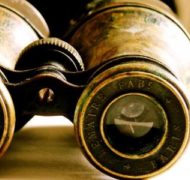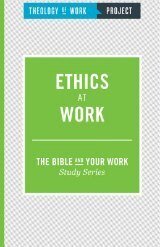What Do You Do: Focused Answers for Unfocused Careers
Blog / Produced by The High Calling
“The fox knows many things, but the hedgehog knows one big thing.”
— Archilochus
“What do I usually do? I find things and I found things. Things I find include tools, ideas, books, and people, which I blend and purvey. Things I’ve founded and co-founded include the Trips Festival (1966), Whole Earth Catalog (1968), Hackers Conference (1984), The WELL (1984), Global Business Network (1988), and The Long Now Foundation (1996).”
That is Stewart Brand’s answer to the “What do you do?” question, and one of my favorite such answers. “I find things and I found things.” In that little sentence Mr. Brand manages to convey a clear articulation of his sense of himself, in a way that weaves together the many jobs he has had, the many projects he has undertaken, and the astonishingly wide array of work he has accomplished, bringing a coherence to all of his activities by weaving them together with two persistently common threads.
While I am not a polymath on the same scale as Mr. Brand, my own career might appear, from the outside, to careen from one unrelated focus to another. As someone who takes delight in exploration and discovery (for better and for worse I am more a fox than a hedgehog, in the poet Archilochus’s terms), I enjoy scouting unfamiliar terrain and facing novel challenges, which partly explains the array of things I have done. From the inside it feels to me as if my work life has a coherence, although I haven’t quite found a sentence as concise as Mr. Brand’s to capture what weaves it all together.
Perhaps it is harder for foxes to answer concisely, “What do you do?” We usually have several projects on the go, sometimes within the framework of one paid job, sometimes as part of a portfolio career where we juggle different jobs at the same time, and sometimes with our more significant projects not being income-generating at all. This can make the initial moments of answering the question a little awkward, not only over drinks with new acquaintances, but also—potentially with more momentous immediate consequences—in job interviews.
Shifts in What I Do, Who I Am, and Where I Belong
Because the question “What do you do?” arises as a problem for foxes earlier and more persistently than for hedgehogs, I imagine that we foxes have more experience to draw on, come career cataclysms. Almost all of us at work today have experienced to some extent the career-disrupting effect of the recent great recession. Others have experienced the disruptions brought about by large-scale historical changes in the viability of certain industries. Growing up with the expectation of a job in the steel mill or in automotive manufacturing like dad and granddad led to deep disappointments for earlier generations in Rust Belt America. Similar shifts are always everywhere in process in a closely interconnected global economy.
More immediately, many of us know the middle passage of life—sometime between our mid-thirties and our mid-fifties—as a time when the career dreams of our young adulthood have lost their charm or turned out to be phantasms. These big changes bring us face to face with the deeper significance of the question because there are indissoluble connections between how we answer the question “What do you do?” and the questions “Who am I?” and “Where do I belong?”
Vocation (our sense of what we are called to do in the world), identity (our sense of who we are), and belonging (our sense of connection with other human beings, communities, and places) are inextricably woven together. It is possible to change from one job to another while preserving continuity in vocation (for example, moving from sales in one car dealership to sales management in another dealership), but some shifts (for example, moving from pastor to baker) require truly fundamental changes in one’s life, including the renegotiation of identity and belonging.
“The difference between a job change and a career reinvention lies in a depth of personal transformation that is largely invisible to an outside observer,” writes Herminia Ibarra in Working Identity: Unconventional Strategies for Reinventing Your Career. Career reinvention requires “revisiting the basic assumptions we use to evaluate possibilities,” including assumptions regarding “our emotional relationship with institutions, our benchmarks for success, and our preconceived notions about viable work arrangements.” Along with a career reinvention we must do “important inner business” as we “come to new and different ways of integrating who we were then with who we are now and who we are becoming.”
Telling Our Way Forward
Whether foxes or hedgehogs, whether enjoying a moment of career stability or working through a career reinvention, all of us when seriously responding to the question “What do you do?” tell a story that reveals our sense of who we are and where we belong. And if our story has any spiritual heft, it taps into the larger stories we believe to be true about the meaning and purpose of the world in which we find ourselves. We may benefit from investing a few moments to reflect on these stories and to consider how we will tell them in stormier times.
______________________________
What Do You Do?
If you sit with someone long enough, included in the initial small talk (“Where do you live?” “How do you know so-and-so?”) someone in the conversation will inevitably ask, “What do you do?” What are we looking for when we ask that question? And what do we hear when we’re on the receiving end of that question?
What we do is important stuff in this world, and God desires greatly to be invited into what it is we find ourselves doing every day. God takes delight in the work of our hands. But do we sometimes confuse what we and others “do” with who we are and, especially, who we are in Christ? Would our question change if we thought about it more deeply? And what about our answer? How about you? What Do You Do?






